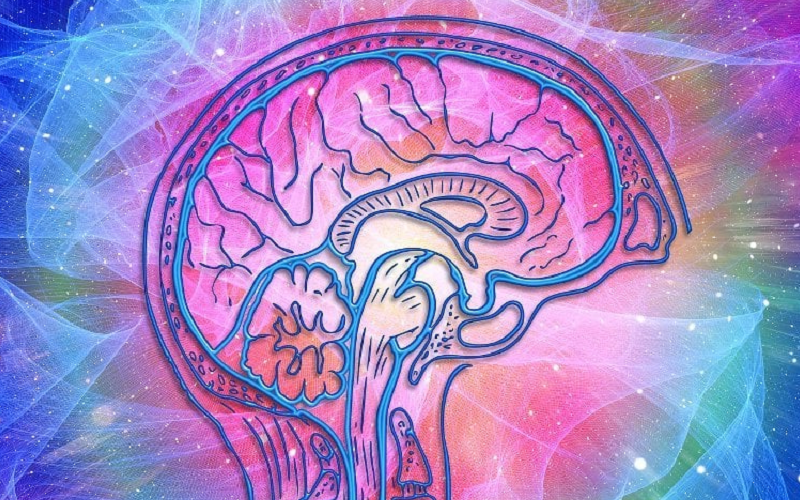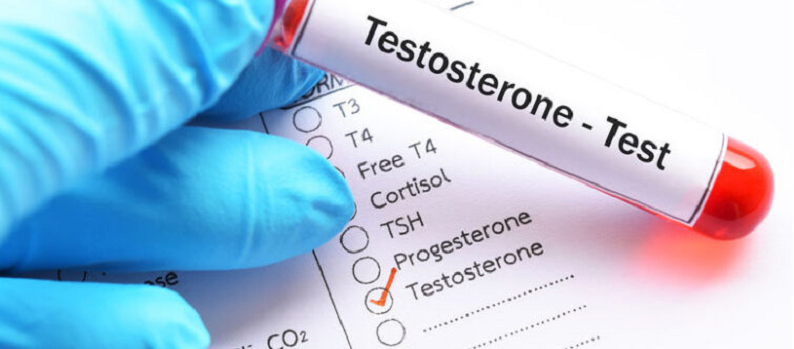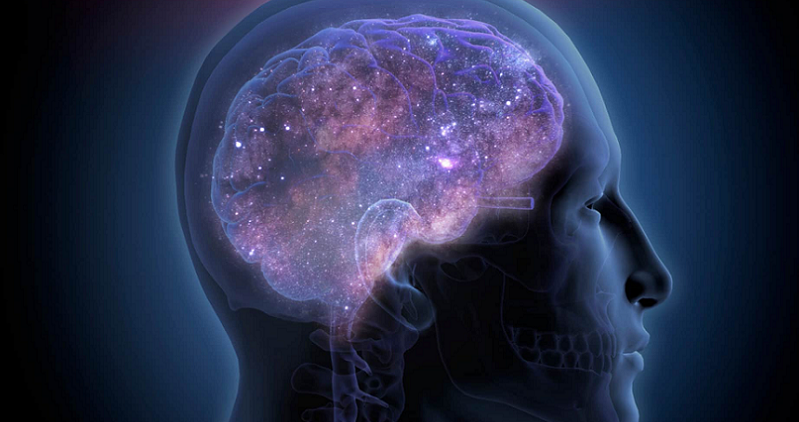
Often when we think of testosterone, images of muscle mass, physical strength, and masculine traits come to mind. However, this hormone’s influence extends far beyond these commonly held perceptions, playing a crucial role in the realm of brain health and cognitive function. Here we explore the fascinating world of brain plasticity – the brain’s ability to change and adapt throughout life. From shaping our learning and memory to influencing our emotional well-being, testosterone is a key player in the intricate ballet of hormones that govern our cognitive abilities.
Contents
Hormones and the Brain
The human brain, a complex and dynamic organ, is significantly influenced by a variety of hormones. These chemical messengers play crucial roles in regulating numerous physiological processes, including those in the brain. Understanding the interplay between hormones and brain function is essential for a comprehensive view of our cognitive health.
The Role of Hormones in Brain Function
Hormones, secreted by the endocrine glands, travel through the bloodstream to various organs, including the brain. They act as key modulators of brain activity, affecting mood, memory, and even the structure of the brain itself. Each hormone can have a unique impact on the brain. For example, cortisol, often called the stress hormone, can affect memory formation and emotional responses. Similarly, estrogen and progesterone have been shown to influence cognitive functions and mood in a variety of ways.
The brain itself is a part of the endocrine system, particularly the hypothalamus and pituitary gland. These areas not only produce their own hormones but also regulate the secretion of hormones from other glands. This close relationship underscores the deep connection between hormonal balance and brain health.
Brief Overview of Neuroendocrinology
Neuroendocrinology is the study of the interactions between the nervous system and the endocrine system. It focuses on how the brain controls hormonal activity and how hormones can influence brain function. This field has provided valuable insights into understanding various psychological and neurological conditions.
One of the key aspects of neuroendocrinology is how hormones affect brain development and plasticity. Brain plasticity refers to the brain’s ability to change and adapt as a result of experience. Hormones like testosterone have been found to influence this plasticity, but their exact role and the mechanisms behind their effects are complex and multifaceted.
In this context, testosterone, a hormone traditionally associated with male characteristics and reproductive functions, emerges as a significant influencer of brain plasticity. Its effects, however, extend beyond the commonly held associations and have profound implications for both genders across different life stages [1].
Testosterone: Beyond the Common Perception
When we think of testosterone, it’s often in the context of its role in developing male secondary sexual characteristics, such as increased muscle mass and body hair. However, this hormone’s influence extends far beyond these physical attributes. Testosterone plays a significant role in various bodily functions, including brain health and cognitive abilities, which is a less explored and understood aspect of its impact.
Common Misconceptions About Testosterone
There are several misconceptions surrounding testosterone. One of the most prevalent is that it’s solely a male hormone. While it’s true that testosterone levels are generally higher in men, this hormone is also present in women, albeit in smaller quantities, and plays vital roles in their bodies as well.
Another common misconception is associating testosterone primarily with aggression and sexual drive. While testosterone does influence these aspects, its role is much more complex and nuanced. It affects mood, motivation, and even mental health. These multifaceted impacts of testosterone extend into areas like cognitive function and brain plasticity, which are often overshadowed by its more well-known effects.
Broader Biological Functions of Testosterone
Testosterone’s role in the body is diverse. It contributes to the maintenance of bone density, muscle mass, and red blood cell production. Moreover, it’s integral to general well-being, influencing energy levels, mood, and mental acuity.
In the context of brain health, testosterone is known to affect brain structure and function. It influences areas of the brain involved in memory and spatial abilities, such as the hippocampus. Testosterone also plays a role in neuroprotection, offering some defense against neurodegenerative diseases [2].
Moreover, fluctuations in testosterone levels can impact mental health. For instance, low testosterone levels have been linked with mood disorders and cognitive impairments.

Testosterone and Brain Plasticity
The relationship between testosterone and brain plasticity presents a compelling aspect of neuroendocrinology. Brain plasticity, or neuroplasticity, is the brain’s ability to reorganize itself by forming new neural connections throughout life. This ability is crucial for learning, memory, and recovery from brain injuries. Testosterone, as a hormone, plays a significant role in modulating this plasticity, influencing how our brains develop, function, and adapt over time.
What Is Brain Plasticity?
Brain plasticity refers to the remarkable ability of the brain to modify its own structure and function in response to experience, injury, or environmental changes. It’s a fundamental property of the nervous system that enables learning, memory formation, and adaptation to new situations or information. Plasticity occurs at various levels, from cellular changes in the strength of synapses to large-scale cortical remapping in response to injury.
The brain’s plastic nature means that it is constantly being shaped and reshaped by our experiences and interactions with the environment. This adaptability is what allows us to acquire new skills, store memories, and even recover from certain types of brain damage.
The Link Between Testosterone and Brain Plasticity
Testosterone has been found to play a significant role in brain plasticity. Its effects are observed in various cognitive functions such as memory, spatial ability, and mood regulation. Testosterone influences neuroplasticity through several mechanisms:
Synaptic Plasticity
Testosterone is known to affect synaptic plasticity, which is the ability of synapses to strengthen or weaken over time. This synaptic modification is crucial for learning and memory formation.
Neurogenesis
Research suggests that testosterone can promote neurogenesis, the process of generating new neurons in the brain, particularly in the hippocampus, a region crucial for memory and learning [3].
Neuroprotection
Testosterone has been observed to offer some level of protection against neurodegenerative processes, potentially reducing the risk of diseases like Alzheimer’s.
Hormonal Interaction
Testosterone interacts with other hormones and neurotransmitters, influencing brain function and plasticity. For example, it can modulate the effects of cortisol, the stress hormone, on the brain.
Review of Scientific Studies of Testosterone and Brain Plasticity
Various studies have provided insights into how testosterone affects brain plasticity. For instance, research has shown that higher testosterone levels are associated with improved cognitive functions in older men. Another study suggested that testosterone replacement therapy could improve spatial memory in men with lower testosterone levels.
These studies, however, come with their complexities and limitations. The relationship between testosterone and brain plasticity is influenced by factors such as age, gender, and individual health conditions. The precise mechanisms through which testosterone affects the brain are still being unraveled, and ongoing research continues to shed light on this intricate relationship.

Effects of Testosterone on Cognitive Functions
Testosterone’s impact extends into various aspects of cognitive functioning, influencing how we think, learn, and process emotions. Understanding these effects is crucial for a comprehensive view of the hormone’s role in brain health and cognitive well-being.
Testosterone’s Effects on Memory and Learning
One of the key areas where testosterone appears to have a significant impact is in memory and learning. Studies have shown that testosterone can influence both verbal and spatial memory. In verbal memory, for example, some research suggests that higher testosterone levels are associated with better performance in memory tasks. Similarly, in spatial memory, which involves the ability to understand and remember the spatial relations among objects, testosterone seems to play a facilitating role.
The mechanism behind this influence is thought to be linked to testosterone’s effect on the hippocampus, a brain region vital for forming and retrieving memories. Testosterone is believed to enhance the synaptic plasticity of the hippocampus, thus aiding in the consolidation and retrieval of memories.
Testosterone Effects on Emotional Regulation and Mood
Testosterone also plays a role in emotional regulation and mood. Fluctuations in testosterone levels have been associated with changes in mood states. For instance, low testosterone levels in men have been linked to a higher prevalence of depression, moodiness, and irritability [4].
Furthermore, testosterone may interact with neurotransmitter systems that are involved in mood regulation, such as serotonin and dopamine. This interaction highlights the hormone’s complex role in not only cognitive functions but also in emotional well-being.
Testosterone Link to Spatial Abilities
Testosterone has been consistently linked to spatial abilities. Numerous studies indicate that higher testosterone levels correlate with enhanced performance in tasks requiring spatial skills, such as mental rotation and spatial navigation. This is particularly evident in studies focusing on age-related declines in testosterone levels and their association with decreases in spatial cognition.
The exact mechanism through which testosterone enhances spatial abilities is still under investigation. However, it is hypothesized that testosterone may influence the development and maintenance of neural circuits involved in spatial processing.
Gender Differences in Testosterone Levels and Brain Plasticity
The influence of testosterone on brain plasticity and cognitive function is not uniform across genders. Men and women differ not only in their levels of testosterone but also in how this hormone impacts their brain health and cognitive abilities.
Testosterone Levels in Different Genders
Typically, men have significantly higher levels of testosterone compared to women. In men, testosterone plays a key role in the development of male reproductive tissues, as well as promoting secondary sexual characteristics. In women, while the levels are lower, testosterone is still important for bone strength, muscle mass, and overall well-being.
The differences in testosterone levels between men and women are also associated with distinct effects on brain development and function. For instance, these hormonal differences are thought to contribute to variations in brain size and the proportion of gray to white matter in the brain.
Impact of Testosterone Gender Level Differences on Brain Plasticity
The impact of testosterone on brain plasticity varies between genders. In men, the higher levels of testosterone have been linked to enhanced spatial abilities and certain aspects of memory. However, this does not necessarily mean that men outperform women in these cognitive domains, as women’s brains utilize different strategies and neural pathways that can lead to similar levels of performance.
In women, the effects of testosterone on brain plasticity are less understood, partly due to the lower levels of the hormone. However, some studies suggest that even at these lower levels, testosterone can influence cognitive functions and brain health in women. For example, research has indicated that testosterone may play a role in protecting against neurodegenerative diseases like Alzheimer’s, particularly in postmenopausal women [5].
Additionally, the fluctuations in testosterone levels across different life stages, such as during menopause or andropause, can have varying impacts on brain plasticity and cognitive functions in both genders. These changes might contribute to the differences in the incidence and manifestation of certain cognitive disorders between men and women.
Age-Related Changes in Testosterone and Brain Plasticity
As we age, our bodies undergo various hormonal changes, including alterations in testosterone levels. These changes can have a significant impact on brain plasticity and cognitive functions. Understanding the interaction between age-related hormonal shifts and brain health is crucial for developing strategies to maintain cognitive abilities in older age.
Testosterone Levels Over the Lifespan
Testosterone levels naturally fluctuate throughout a person’s life. In men, testosterone peaks during adolescence and early adulthood and then gradually decreases with age. This decline can be associated with changes in muscle mass, bone density, and various aspects of cognitive function. In women, testosterone levels are lower throughout life compared to men, but they also experience a decline with age, particularly during and after menopause.
The decrease in testosterone levels with age has been linked to various age-related cognitive issues. For example, lower testosterone levels in older men have been associated with a higher risk of cognitive decline, including conditions like Alzheimer’s disease. Similarly, in postmenopausal women, reduced levels of testosterone and other sex hormones have been implicated in the increased risk of cognitive impairments.
Effects of Age-Related Testosterone Level Changes on Brain Plasticity in Aging Populations
The decline in testosterone levels with age can have a direct impact on brain plasticity. Brain plasticity is essential for learning new information, adapting to changes, and recovering from brain injuries. As testosterone levels decrease, there might be a reduction in the brain’s ability to reorganize and form new neural connections, which can lead to declines in cognitive functions such as memory, spatial awareness, and problem-solving skills.
Research has shown that testosterone supplementation in older adults can sometimes lead to improvements in cognitive functions, suggesting a link between testosterone levels and brain plasticity. However, the efficacy and safety of testosterone replacement therapy, especially in the long term, remain topics of ongoing research and debate.
References
[1] Aging, testosterone, and neuroplasticity: friend or foe?
[2] Androgen Effects on Neural Plasticity
[3] Testosterone and Adult Neurogenesis
[4] Testosterone’s Dual Role in Brain Development: Affects Emotion Control Differently Across Ages
[5] Developmental shift in testosterone influence on prefrontal emotion control

